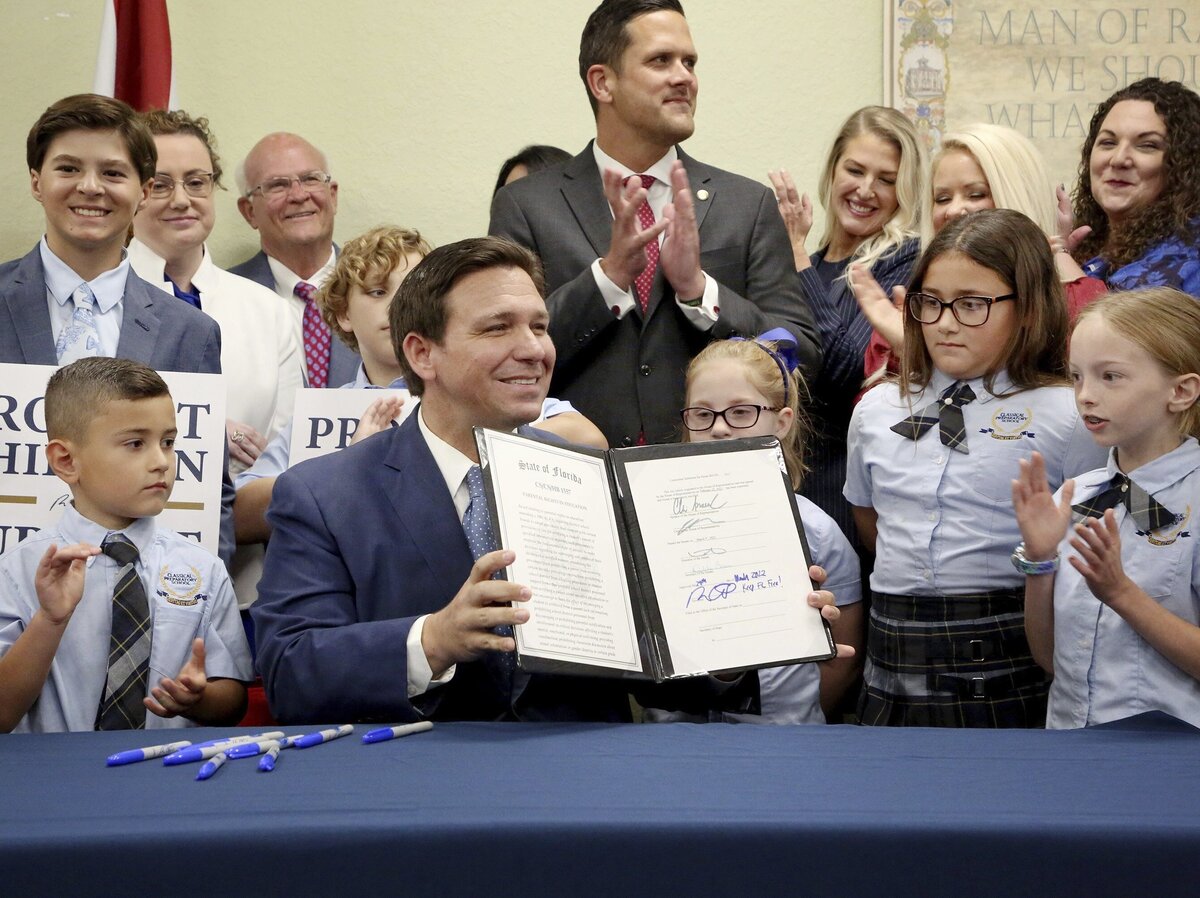
Florida Gov. Ron DeSantis displays the signed Parental Rights in Education flanked by elementary school students during a news conference on Monday, March 28, 2022, at Classical Preparatory school in Shady Hills.
Douglas R. Clifford/AP
hide caption
toggle caption
Douglas R. Clifford/AP

Florida Gov. Ron DeSantis displays the signed Parental Rights in Education flanked by elementary school students during a news conference on Monday, March 28, 2022, at Classical Preparatory school in Shady Hills.
Douglas R. Clifford/AP
Florida’s Parental Rights in Education law, which prohibits classroom instruction on sexual orientation and gender identity for students in kindergarten through third grade, was signed into law at the end of March by Republican Gov. Ron DeSantis.
Critics have dubbed this it the ‘Don’t Say Gay’ law.
Lt. Gov. of Florida Jeanette Nunez spoke to NPR’s Kelsey Snell about the goals of the law.
Nunez says it’s about protecting parental rights, so that parents get to decide what their children learn about sexuality and gender and when.
Proponents of the legislation say it’s not aimed to prevent all LGBTQ topics being discussed.
Yet opponents believe the way the law is written is too vague and is intended to further oppress LGBTQ people and topics.
A lawsuit has been filed against Gov. DeSantis by several LGBTQ rights advocates in an effort to block the law.
“This effort to control young minds through state censorship — and to demean LGBTQ lives by denying their reality — is a grave abuse of power,” is what the lawsuit alleges.
NPR’s Melissa Block spoke with a number of teachers across the state of Florida who are worried about the chilling effect this law may have on not just what they teach and speak about in the classroom, but how it affects their students’ well-being.
In participating regions, you’ll also hear a local news segment to help you make sense of what’s going on in your community.
Email us at [email protected].
This episode was produced by Jason Fuller. It was edited by Patrick Jarenwattananon, Brianna Scott, Jason DeRose and Melissa Block. Our executive producer is Cara Tallo.